Ask an Attorney a Question for FREE!
Medical Coverage or Personal Injury Protection (PIP)
Page 2
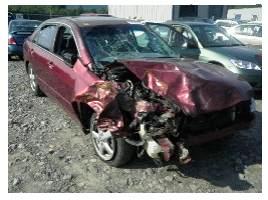
Under Medical Coverage (PIP) in most insurance auto policies, the insurance company will cover reasonable Essential Services and Expenses.
This means that the carrier will pay for those activities that the wounded person was performing before the accident but can no longer perform because of the injury (e.g. doing laundry, taking care of his kids, cooking, cleaning, driving, mowing the grass, etc.).
This coverage is highly restricted. Usually there is a very low daily limit ($12 per day maximum for these expenses).
You would have to show, by clear evidence, that only the injured insured could perform that essential service and that the injury really tampers with the injured insured’s ability to perform the service (usually a doctor’s letter will be enough evidence).
Another restriction under Medical Coverage or PIP is the expectations insurance companies can put on their insureds. The carrier usually requests a medical authorization and a wage and employment verification form.
You must fill out these forms if you want to seek coverage. These forms are helpful to the insurance carrier as these allow the carrier to see your entire medical history. I mean “entire” as in all your medical history for all your life, related and not related to the accident.
Some insurance companies have softened the language in these forms. However, in some jurisdictions they can come back and ask you for up to five to ten years of medical history.
Medical Coverage or PIP gives them the right to access all your records and look for any indication that your injuries are not related to this accident and therefore they can deny payment.
This also happens with your employment records. They will be contacting your employer for your timecard, financial information, vacation information, and anything else they can think of.
I do not have to explain how problematic this can be, but if it is not, then at the very least it is intrusive. I understand the insurance company has to confirm your loss to be able to pay you, but sometimes they seem to be more concerned with finding evidence against you to deny payment.
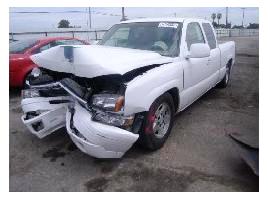
The question, is do I have to sign these forms? Yes, you do if you want them to pay.
The law says that if the insurance company is paying for a bill, then they are entitled to see the medical report and test results. This also applies to your loss wages as well. However, you can request the insurance to soften or change the language of the form.
You can request them to ask for prior records from only medical providers that they are paying bills for, and only medical records that relate to your accident (the date of that accident) and injury (records related to neck injury).
For example, if you have a neck injury, they can ask for prior records regarding your neck, and not anything else. If you do not care whether or not they see all your records then just sign and send it back, but if you are more reserved and have personal reasons to keep all your medical history secured, then you should control what they see and what they do not.
Remember that the insurance company must act in good faith. This means that they cannot do things just to delay payment (like asking for all your medical history since you were a newborn). It does not mean though that they will not try.
Another common restriction is that Medical Coverage or PIP will be completely excluded if the treatment you seek is covered under workers compensation law.
Medical Coverage or PIP allows for funeral expenses. If you or any person in the household dies because of an automobile accident, then they will pay certain amount for medical expenses. Usually that amount is stated on your declarations page. Most insurance companies limit this coverage to $2,000.
Medical Coverage and Personal Injury Protection (PIP) have exclusions for general damages (pain and suffering, loss of quality of life, loss of consortium, etc.). This is perhaps the strongest exclusion. The coverage is limited to medical bills and loss of earnings.
Here are some situations where you need to keep this coverage in mind:
Most insurance policies under Medical Coverage or Medical Payments will cover you as a pedestrian.
If a vehicle hits you when you are a pedestrian, then you (the insured) are involved in a vehicle accident and you are entitled to this coverage.
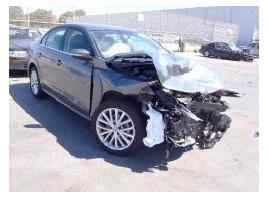
The definition of insured under this section is extended to everyone living with the policyholder (any household member).
Therefore, if your wife, husband, fiancé, boyfriend or girlfriend, kids, step kids, etc., were hit by a vehicle when they were walking down the road, this coverage would apply to them.
If you are driving down the road and a pedestrian jumps in front of you (100% their fault), you will see that the definition of insured under this section will be extended to that pedestrian. Even if they are at fault (the coverage expands for medical bills only, and not pain and suffering).
This means that they would be covered for their medical bills up to the limit of coverage that you have purchased as if they were a first party. The only limitation to this coverage has to do with the actual location of the accident.
Some auto policies will only extend the definition of “insured” to pedestrians in the state where the policy was actually written. Some will extend to any pedestrian anywhere in the continental U.S.
I know this sounds somewhat unfair, why would your insurance pay for something that you did not cause?
I think the answer is that when there is car vs. pedestrian accident, the pedestrian seems to have the upper hand in a court of law. Perhaps it is an easier way to defuse an already bad situation (the possibility of a lawsuit).
As expressed above, this coverage is very restricted. However, you cannot afford not to have it. Some insurance agents will tell you to waive it (if it is legal to do so) so you can save money on your premium (often very little).
This is a ludicrous preposition (red flag: your agent is not very honest).
Those who do not understand insurance will think that the agent is making an honest suggestion, after all, the less money you spend on the insurance premium, the less of a kick back the agent gets, right?
Not really. Agents are also interested on their loss ratio. Yes, they are interested in selling insurance to people that will not make claims.
The less the insurance company has to pay in losses, the more the insurance agent gets at the end of the year in bonuses and perks, so by waiving your medical bills there will be huge savings to the insurance company.
If you do waive medical coverage and/or PIP, then you will be saving a little money on your premium (not enough to justify the risk).
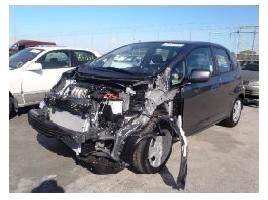
Remember that if you get in a car accident, you would have pay out of your own pocket to cover for your and that of your expenses as well as those of your passengers. In addition, you and your family will not have any protection as pedestrians.
The last thing I will mention about Medical Coverage or PIP is the issue of having your health insurance plan cover your accident injuries.
Agents will tell you, why pay medical coverage or PIP when you have health insurance?
The answer is rather simple. Most health insurance companies will request written notice from your insurance company showing that you do not have that coverage.
This sounds simple enough, but insurance companies drag their feet (they can legally wait up to 60 days). So, some of your bills will not be paid right away. In addition, your medical coverage will be paid at 100% with no deductible or co-pay.
If you decide to use your health insurance, you will be responsible for co-pays, deductibles, and co-insurance (they will pay up to 80% of your injury).
Also, remember that health insurance plans restrict constructive surgeries, and some are very restrictive on dental and vision care.
In addition, there are no coverages for other people in your vehicle (just the people on the health insurance plan). So, no coverage is extended to passengers not named in the health insurance plan.
Another huge incentive to have Medical Coverage and/or PIP is for people insured in Montana and in Arizona. They have the possibility of double or triple recovery on medical bills.
Montana will let you be paid twice for your medical bills. How can that be? There are statutes in Montana where it is forbidden for insurance companies to subrogate (go after or seek compensation) for payments made on behalf of an insured when coverage exists.
For example, if you are hit in Montana (not your fault) and you are injured, then you should file a Personal Injury Protection claim or medical coverage claim as soon as you can.
Why? Because your insurance company will have to pay for your medical expenses and they cannot ask for compensation back from you or from the party that hit you (or their insurance company).
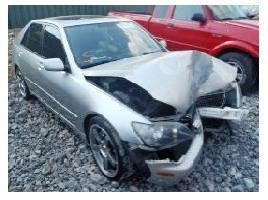
This does not relieve the responsible party from having to pay (after all they hit you and put you on this situation). But who do they have to pay if the bills are already paid? That would be you. Therefore, your doctor is paid, and so are you.
In Arizona, The statute that regulates insurance companies are written in such a way that health insurance plans cannot seek compensation from any other insurance company, and the same applies to first party PIP and or Medical Coverage insurance carriers.
Therefore, you can file a claim with your health insurance (i.e. Blue Cross) and then let them pay for your bills.
The medical coverage will have to pay you for those bills again, and so does the insurance company of the responsible party. Your doctor is paid once and you get paid twice.
My best advice, do not waive this coverage, please.
Read Personal Injury Coverage (PIP) page 1.
Click below for an explanation insurance coverages and terms:
Automobile Liability Insurance or Liability Page 1
Automobile Liability Insurance or Liability Page 2
Automobile Medical Payments or Personal Injury Protection (PIP) Page 1
Automobile Medical Payments or Personal Injury Protection (PIP) Page 2
Collision Coverage (Protection Against Loss to the Auto) Page 1
Collision Coverage (Protection Against Loss to the Auto) Page 2
Comprehensive Coverage (Protection Against Loss to the Auto) Page 1
Comprehensive Coverage (Protection Against Loss to the Auto) Page 2
Under or Uninsured Motorist Property Damage (UMPD) Page 1
Under or Uninsured Motorist Property Damage (UMPD) Page 2
Under or Uninsured Motorist Bodily Injury (UMBI)
Rental Reimbursement or Loss of Use Coverage Page 1
Rental Reimbursement or Loss of Use Coverage Page 2
Restoration Coverage
Towing and/or Road Assistance Coverage (Emergency Packages)
Insurance Clauses and Terms
Overview
Actual Cash Value or ACV
Additional Insurance Clause
Cancellation of Coverage Clause
Choice of Law Clause
Forum Selection Clause
Duty to Cooperate Clause
Duty to Report Losses Clause
Financial Responsibility Clause
Insurable Interest Concept
Interpretation of the Policy Concept
Mandatory Arbitration Clause
Mitigation of Damages Clause
Non Duplication of Benefits Clause
Proof of Loss Clause
Promissory Estoppel Concept
Reservation of Rights Concept
Reasonable and Necessary Clause
Right of Appraisal Clause
Right of Settlement Clause
Rights of Counsel Concept
Subrogation of Rights Clause Part I
Subrogation of Rights Clause Part II
Statute of Limitations Concept
Replacement Cost Value
Restoration Coverage
Transfer of Benefits Clause
|
For a Free Review of Your Case
Please Call (866) 878-2432 |


